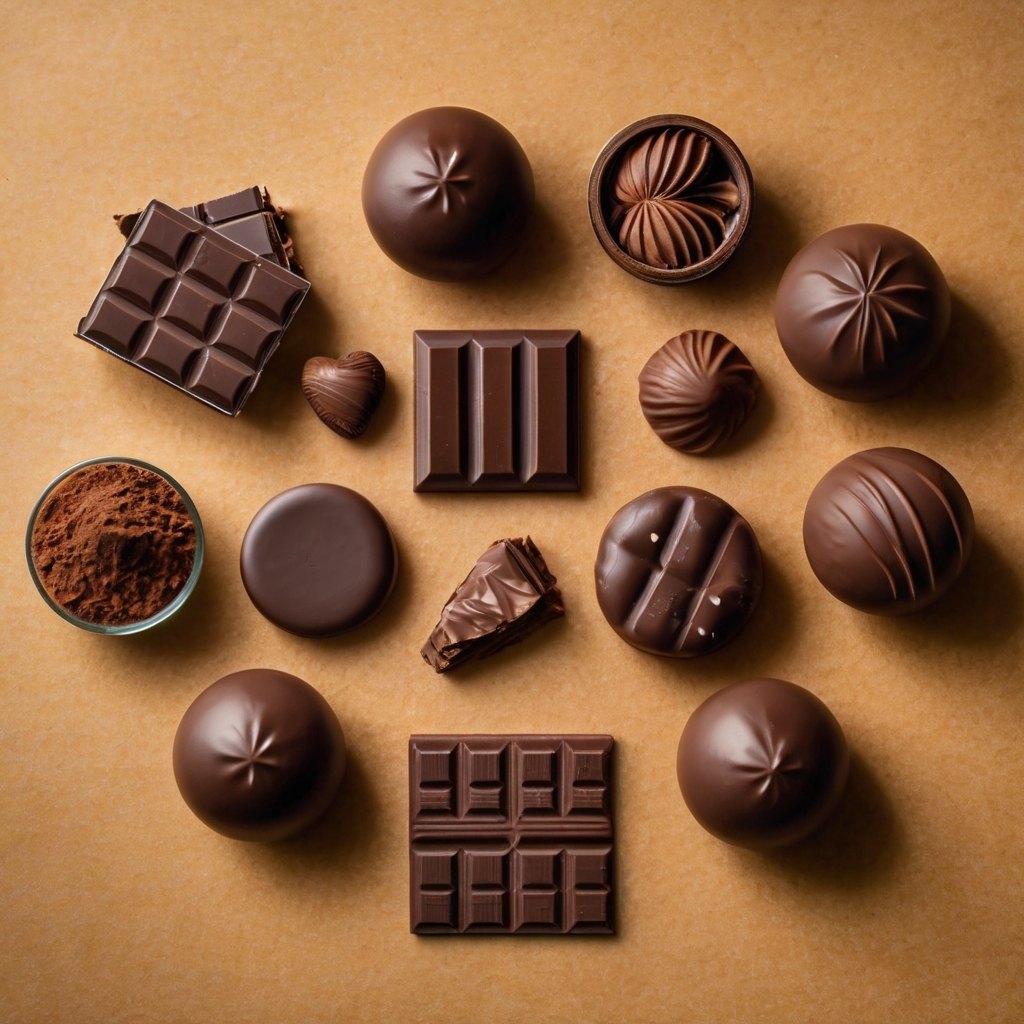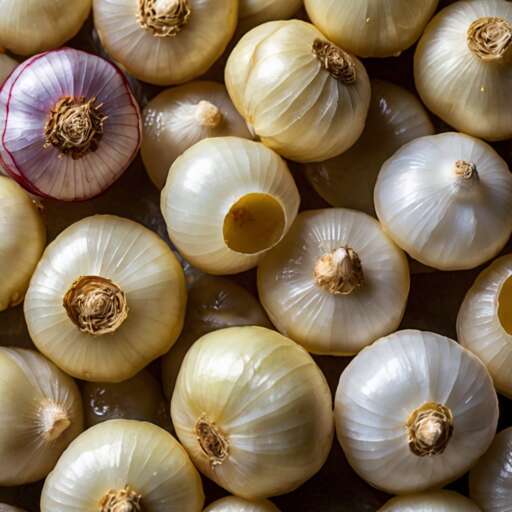People love chocolate, and you might wonder if it’s actually good for you. Science suggests it just might be. American women really love their chocolate – 45 percent say they crave it. College life makes it even more tempting, as 91 percent of female students keep craving it. You shouldn’t feel bad about enjoying chocolate. Research from 2017 shows eating chocolate three times weekly can lower your risk of cardiovascular disease by 9%.
Your mindset about chocolate makes a big difference. A 2014 study revealed something interesting: women who saw chocolate cake as something to celebrate managed to keep their weight better than those who felt guilty about it. This isn’t just about solid chocolate – it applies to all forms. People often ask if hot chocolate helps when they’re sick, or if it’s healthy to drink it at night. Some even wonder if it can help with weight loss. The answer depends on two things: cocoa content and how you make it. Dark chocolate packs a punch, especially when it has lots of cocoa. It’s rich in antioxidants and flavanols that reduce inflammation and protect your health. But watch out – chocolate can have side effects too, especially the sugary kinds with little cocoa.

Table of Contents
- 1 Why Chocolate Isn’t Always the Villain
- 2 What’s Inside Chocolate That Matters
- 3 Health Benefits Backed by Science
- 4 When Chocolate Might Not Be Good for You
- 5 How to Enjoy Chocolate the Healthy Way
- 6 Here are some FAQs about if is hot chocolate good for you:
- 6.1 Is it healthy to drink hot chocolate?
- 6.2 Is hot chocolate better for you than coffee?
- 6.3 Is 100% hot chocolate good for you?
- 6.4 Is hot chocolate too much sugar?
- 6.5 Is hot chocolate junk food?
- 6.6 Is it OK to drink hot chocolate once a day?
- 6.7 Is it OK to drink hot chocolate every night?
- 6.8 What is the difference between hot cocoa and hot chocolate?
- 6.9 Is hot chocolate high in caffeine?
Why Chocolate Isn’t Always the Villain
People often see chocolate as a guilty pleasure they should avoid or feel bad about eating. Research paints a different picture of our connection with this delicious treat. Let’s take a closer look at how our mindset changes the way we enjoy chocolate and how it affects our health.
The guilt vs. celebration mindset
Our attitude toward chocolate can change how it affects us. A fascinating study in the journal Appetite showed that women who enjoyed chocolate without guilt managed to keep healthier weights over time. Those who linked chocolate with celebration instead of shame ate better overall and had fewer binge episodes.
The psychology behind this makes sense. Labeling foods as “bad” or “forbidden” creates an unhealthy relationship with them. You can transform the experience by seeing chocolate as an occasional treat to savor. This fundamental change in thinking doesn’t just boost enjoyment—it changes how your body responds too.
Your body reacts differently when you eat chocolate with guilt. Stress hormones go up, digestion slows down, and you feel less satisfied. But when you eat chocolate mindfully with pleasure, it triggers different brain pathways linked to satisfaction and contentment.
Chocolate’s nutrients don’t change based on your thoughts. Your body’s processing and eating patterns change based on your mindset.
How restriction leads to overindulgence
Many people know this cycle: completely avoid chocolate, give in to intense cravings, overeat, feel guilty, then avoid it again. This “restriction-binge cycle” hurts both physical and mental health.
Research in eating psychology shows that banning specific foods makes them more tempting. Study participants told not to think about chocolate thought about it much more than others. When they finally got to eat chocolate, they ate larger amounts.
Experts suggest these alternatives to complete restriction:
- Don’t label food as “sinful” or “bad”
- Be aware of portions instead of strict limits
- Enjoy quality chocolate mindfully without distractions
- Choose darker varieties with more cocoa when possible
The question “is chocolate good for you” misses the point—your relationship with it matters as much as the food itself. Questions about hot chocolate at night or chocolate during periods need this same balanced view.
Research shows that regular, moderate chocolate eating reduces overall cravings. People who include small amounts of chocolate in their diet feel more satisfied with their eating habits and lose control less often.
This doesn’t mean ignoring chocolate’s nutrition or eating it mindlessly. It suggests finding middle ground—where chocolate isn’t evil or a superfood, but just part of balanced eating.
The benefits of hot chocolate for weight loss depend on how you make it and your attitude. A mindful cup of good cocoa with less sugar might satisfy a craving better than lots of less satisfying foods.

What’s Inside Chocolate That Matters
Chocolate’s nutritional value changes based on what goes into making it. Each chocolate bar is unique, and knowing what makes up your favorite treat helps you make better choices about which type to enjoy and when.
Cocoa content and flavanols
Health benefits of chocolate come from its cocoa content. Cocoa beans pack more than 300 different compounds, including powerful plant nutrients called flavanols. These compounds act as antioxidants that combat inflammation throughout your body.
More cocoa in your chocolate means you’ll get more of these beneficial compounds. Pure cocoa powder contains about 88mg of flavanols per gram, making it one of the best sources of these compounds in our diet. Dark chocolate with 70-85% cocoa gives you roughly 30-45mg of flavanols per serving.
These flavanols bring several health benefits:
- They boost nitric oxide production that relaxes blood vessels and improves circulation
- They lower oxidative stress in your body
- They enhance cognitive function and brain health
- They help control blood sugar levels
Processing methods play a huge role. Dutch-processed or alkalized cocoa goes through treatment that cuts flavanol content by up to 60%. Natural cocoa powder or minimally processed dark chocolate gives you better health benefits.
Dark vs. milk vs. white chocolate
The difference between chocolate types matters a lot when you ask “is chocolate good for you?” Dark chocolate usually has 50-90% cocoa solids, little sugar, and no milk solids. This makes it your best choice nutritionally, with more fiber, iron, magnesium, and those valuable flavanols.
Milk chocolate contains 10-50% cocoa solids plus added milk and lots more sugar. Many people prefer its taste, but less cocoa means fewer good compounds and more calories from sugar and fat.
White chocolate isn’t really chocolate since it has no cocoa solids—just cocoa butter, sugar, and milk solids. You won’t find beneficial flavanols in it, so it’s just a sweet treat without health perks.
Hot chocolate’s benefits depend on how you make it. A cup made with high-quality dark cocoa powder, minimal sweetener, and milk or plant-based alternatives can be good for you, especially at bedtime thanks to its magnesium content.
How to read chocolate labels
Smart chocolate shopping starts with understanding what you’re buying. Marketing claims dominate the front of packages, so the ingredients list tells the real story.
Ingredients appear by weight order on the label. Quality dark chocolate lists cocoa or cocoa mass first, not sugar. “Chocolate liquor” or “cocoa mass” means pure ground cocoa beans containing both cocoa solids and cocoa butter.
Look out for vegetable oils that sometimes replace costlier cocoa butter. These substitutes lower both quality and health benefits.
Package percentages show total cocoa content (cocoa solids plus cocoa butter). You’ll get more health benefits from 70% or higher—this usually means more beneficial compounds and less sugar.
Quality beats quantity if you want chocolate’s health benefits. A small piece of high-cocoa dark chocolate gives you more beneficial compounds than larger amounts of lower-quality products. This makes it your best choice for healthy chocolate consumption.
Health Benefits Backed by Science
Scientists keep finding amazing health benefits from eating dark chocolate. Let’s look at what research tells us about this tasty treat and how it helps our health.
Heart health and blood pressure
Dark chocolate does wonders for your heart health. People who regularly eat cocoa products rich in flavanols see their systolic blood pressure drop by about 3.2 mmHg and diastolic by 2.0 mmHg. The results are even better for people with high blood pressure – their systolic pressure drops by about 5.0 mmHg. These numbers might seem small, but researchers say they can lower heart disease risk by about 20% over five years.
Brain function and memory
Your brain works better when you eat dark chocolate. Blood flows more freely, and that makes a big difference. People who ate dark chocolate did much better on memory tests than those who had white chocolate. The flavonols in dark chocolate help you react faster, see things better, and remember more. These brain boosts kick in just two hours after eating dark chocolate because more blood reaches your brain.
Stress reduction and mood
Dark chocolate helps you handle stress better. People felt much less stressed after eating dark chocolate for two weeks. Women noticed this effect more than men did. Eating 85% cocoa chocolate every day helped people feel less negative. This might happen because it changes brain waves to gamma patterns that help with memory and stress relief.
Skin protection from sun damage
Dark chocolate can protect your skin from the sun. A study showed that after 12 weeks, people who ate chocolate rich in flavanols could handle twice as much UV light before their skin turned red. Regular chocolate without much flavanol didn’t help at all.
Athletic performance and energy
Athletes get a nice boost from dark chocolate. It increases daily energy use by about 9.6% (adding 140 calories per day). Cyclists who ate dark chocolate for 14 days covered 17% more distance in their time trials. These improvements come from better blood flow and more nitric oxide in the body.
Is chocolate good for you when you’re on your period?
Dark chocolate helps with period pain. Research shows it works well to reduce menstrual cramps. The magnesium in dark chocolate relaxes muscles and might block substances that cause painful contractions. Female students who ate dark chocolate had much less period pain compared to those who drank milk chocolate.
When Chocolate Might Not Be Good for You
The sweet allure of chocolate comes with some drawbacks you should know about before indulging in this beloved treat.
Weight gain and calorie density
Dark chocolate might help lower BMI according to some studies, but its calorie content packs quite a punch. A 100g serving contains 531 kcal, which means portion control is vital. Studies show that adding just one ounce of chocolate daily leads to 0.92 kg weight gain over three years. People who eat chocolate three or more times weekly gained about 1.40 kg during this same period. A typical chocolate bar has around 250 kcal – that’s 10% of a man’s and 12% of a woman’s daily recommended intake. An average 50-year-old needs to walk for 45-55 minutes to burn off these calories.
Sugar content and tooth decay
Sugar in chocolate can wreak havoc on your dental health. The bacteria in dental plaque feed on sugar and release acids that eat away at tooth enamel. Dental caries remains the most common noncommunicable disease worldwide. Research shows your risk of cavities drops when free sugars make up less than 10% of your energy intake – ideally under 5%. Tooth decay has become the number one reason UK children aged 5-9 end up in hospitals, with 26,000 cases each year. The good news? Darker chocolates contain less sugar, which reduces your decay risk.
Migraine triggers and bone health
Chocolate triggers migraines in 2-22% of people who suffer from them. The compound phenylethylamine might be responsible, as it can cause migraine-type headaches in sensitive people. Your bone health could also take a hit, especially if you’re a postmenopausal woman. Chocolate contains methylxanthines that mess with calcium metabolism – caffeine reduces how much calcium you absorb while making you lose more of it.
Heavy metals in some chocolate products
Recent tests revealed something alarming – cadmium and lead showed up in every dark chocolate bar tested. Eating just one ounce daily of 23 out of 28 tested products would push you past public health authorities’ recommended levels for at least one heavy metal. Five chocolate bars exceeded limits for both metals. Even small amounts of exposure over time can mess with your nervous system, blood pressure, and kidney function. This risk is a big deal if you’re pregnant or have kids.
How to Enjoy Chocolate the Healthy Way
The right strategies can help you enjoy chocolate without feeling guilty. Science gives us clear guidelines to include this delicious treat in a healthy lifestyle while meeting wellness goals.
Choose 70% cocoa or higher
Dark chocolate with at least 70% cocoa content offers the best health benefits. The higher cocoa content brings more flavanols and antioxidants that boost heart and brain health. More cocoa means less sugar, making it a better choice for health-conscious people. These chocolates pack more fiber, iron, and beneficial plant compounds. The bitter taste might seem strong at first—start with 50% cocoa and work your way up to 70% or higher. Your taste buds will adapt, and you’ll learn to enjoy chocolate’s rich flavors.
Watch portion sizes
Portion control is a vital part of enjoying chocolate. You should aim for 1-2 ounces (30-60 grams) daily. Some experts suggest smaller portions of just 4 small squares (20g). Here are some helpful strategies:
- Take time to savor each bite and experience the flavors
- Mix small amounts with healthy foods like fruit or nuts
- Make chocolate a planned treat instead of random snacking
- Learn to spot the difference between cravings and real hunger
People usually eat three times more chocolate than they should, averaging around 12 squares (60g). Too much chocolate can lead to weight gain and higher cholesterol.
Is hot chocolate good for you at night?
Bedtime hot chocolate has both pros and cons. Each cup has 5-25mg of caffeine, based on how you make it. This amount is lower than coffee, but sensitive people should be careful. Sugar-free versions work better because sugar can mess with your sleep by affecting blood sugar levels. Better sleep comes from unsweetened cocoa powder or dark chocolate with 70% cocoa. You might want to try caffeine-free drinks like chamomile tea, warm milk, or golden milk with turmeric.
Is drinking hot chocolate good for you when sick?
Hot chocolate can actually help when you’re under the weather. It thins mucus and helps you stay hydrated. British National Health Service doctors found that cocoa might work better than regular cough medicine for stubborn coughs. The best way to use hot chocolate while sick is to make it with dark cocoa powder, minimal sugar, and add things like ginger to reduce inflammation. You can make a simple healing drink with low-fat milk, cornstarch, unsweetened cocoa powder, and a bit of water.
Dark chocolate deserves a place in our balanced lifestyle. We should enjoy it mindfully rather than going overboard. Research has found that dark chocolate with 70% cocoa or higher offers surprising health benefits. These range from better heart health to improved brain function. The connection between chocolate and wellness goes beyond just eating it. Our mindset and approach matter too.
Without doubt, our mental relationship with chocolate affects how our bodies handle this beloved treat. People who see chocolate as something to celebrate rather than feel guilty about usually maintain healthier weights. They also develop better eating patterns. Taking away moral labels from food is a vital step toward healthier eating habits.
Quality plays a huge role in chocolate’s health effects. Dark chocolate packed with flavanols gives you antioxidant benefits that milk and white varieties can’t match. On top of that, portion size is significant. The right amount – 1-2 ounces daily – lets you enjoy chocolate without risks like weight gain or tooth decay.
Research shows chocolate can boost wellbeing when eaten mindfully. Its benefits for heart health, stress reduction, and menstrual comfort make it more than just a tasty treat. You should know about potential downsides too. These include heavy metal content and high calories. This knowledge helps you make smart choices.
The benefits of hot chocolate when you’re sick or before bed depend on how you make it. A lightly sweetened version with dark cocoa powder might help with a stubborn cough. It can also be comforting without messing up your sleep.
Chocolate lovers can rejoice. This ancient food offers real health perks when enjoyed wisely. While no food is a miracle cure, dark chocolate stands out. It’s rare to find something that’s both delicious and potentially good for you. The key is to savor small portions of high-quality chocolate mindfully. This way, we can enjoy one of life’s greatest pleasures while possibly supporting our health too.
Here are some FAQs about if is hot chocolate good for you:
Is it healthy to drink hot chocolate?
The answer to is hot chocolate good for you depends on how it’s prepared – homemade with dark cocoa and minimal sugar can offer antioxidants. When considering is drinking hot chocolate good for you, the calcium from milk provides benefits but sugar content may be concerning. For those wondering is hot chocolate good for you to lose weight, opting for unsweetened versions with plant-based milk makes it a better choice.
Is hot chocolate better for you than coffee?
Compared to coffee, is hot chocolate good for you offers different benefits – it’s caffeine-free (unless specified) and contains antioxidants from cocoa. The is hot chocolate good for you at night question favors it over coffee since it won’t disrupt sleep patterns. However, for low-calorie options, is hot chocolate good for you to lose weight falls short compared to black coffee.
Is 100% hot chocolate good for you?
Pure 100% hot chocolate made from unsweetened cocoa can be quite healthy, answering yes to is hot chocolate good for you when made properly. Without added sugars, it fits into is hot chocolate good for you to lose weight plans when consumed in moderation. The high cocoa content provides flavonoids that support the is drinking hot chocolate good for you argument nutritionally.
Is hot chocolate too much sugar?
Many commercial mixes make is hot chocolate good for you questionable due to excessive added sugars – sometimes 20g+ per serving. When evaluating is drinking hot chocolate good for you, homemade versions with controlled sweeteners or sugar alternatives are better. For those asking is hot chocolate good for you to lose weight, high-sugar versions should definitely be avoided.
Is hot chocolate junk food?
Hot chocolate isn’t inherently junk food, but many pre-made mixes push the limits of is hot chocolate good for you due to processing and additives. The is drinking hot chocolate good for you debate leans positive when using quality cocoa and natural sweeteners. However, for is hot chocolate good for you when sick, even simple versions can provide comfort and some nutritional benefits.
Is it OK to drink hot chocolate once a day?
Drinking hot chocolate daily can be acceptable if considering is hot chocolate good for you when made with healthy ingredients. Moderation is key – answering is drinking hot chocolate good for you daily depends on your overall diet and sugar intake. For is hot chocolate good for you at night, a small unsweetened cup might be fine regularly.
Is it OK to drink hot chocolate every night?
Having hot chocolate nightly works if you’re mindful about is hot chocolate good for you at night by choosing low-sugar options. The is drinking hot chocolate good for you nightly question depends on your calorie needs and sleep quality. Using almond milk and dark cocoa makes is hot chocolate good for you to lose weight more feasible for evening consumption.
What is the difference between hot cocoa and hot chocolate?
Hot cocoa uses cocoa powder while hot chocolate contains actual chocolate, affecting is hot chocolate good for you nutritional profiles. When considering is drinking hot chocolate good for you, traditional hot chocolate tends to be richer and higher in calories. For is hot chocolate good for you when sick, hot cocoa might be lighter and easier to digest.
Is hot chocolate high in caffeine?
Standard hot chocolate is naturally low in caffeine, supporting is hot chocolate good for you at night as a sleep-friendly option. Some specialty mixes may contain added caffeine, altering the is drinking hot chocolate good for you assessment for sensitive individuals. Compared to coffee, is hot chocolate good for you wins for those avoiding stimulants.

